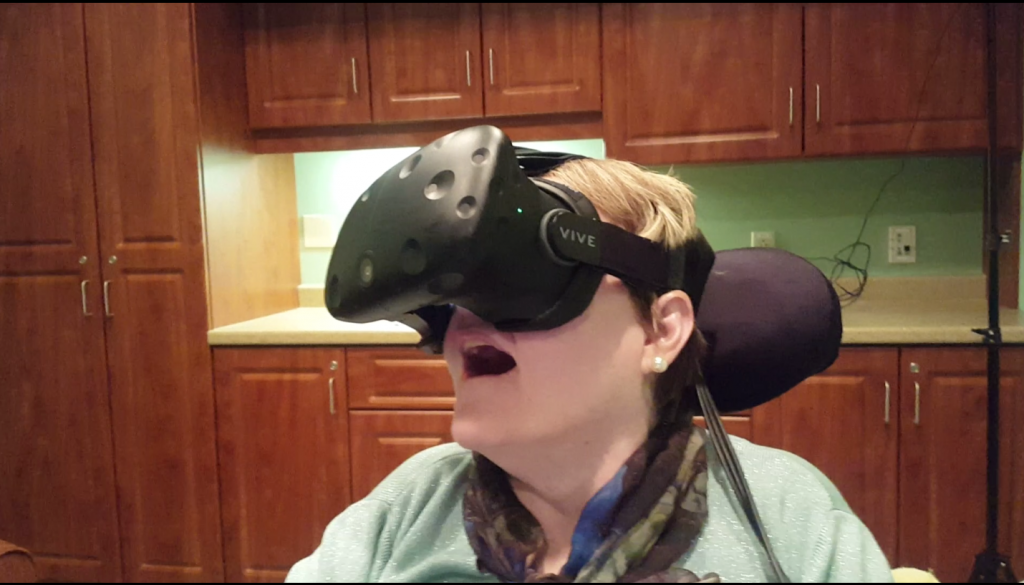Virtual Reality Reduces Negative Moods in Long-Term Care Residents

Award Date: 2018
Project Lead(s): Sherry Law, Researcher
Project Title: Virtual reality interventions on negative mood
What is the issue?
When people move into long-term care homes, they often experience negative moods that can lead to depression and anxiety.
What did we do?
We tested whether virtual reality sessions would help people with no severe cognitive or visual impairments improve their moods. They chose from a selection of virtual reality videos and games or listened to a book of their choice read by a volunteer. The virtual reality experiences included world travel, animals, oceans, nature tours, and interactive games. Twenty-minute sessions were provided twice weekly. We measured all participants well-being after each of the eight sessions that took place over one month. After a month of no activity, we measured well-being scores again.
What did we find?
The virtual reality sessions improved residents’ moods. Their well-being scores improved compared to their scores before the program started. People in the virtual reality group had significantly higher well-being scores than people in the listening to books group. People in the virtual reality group said the experiences were magical, beautiful, fun, and allowed them to try things they had never done before, like riding a roller-coaster. In addition, some participants who felt left out after moving into long-term care felt more connected with life outside the home.

